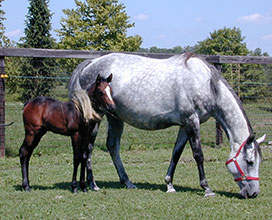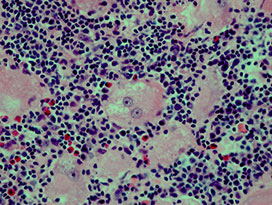Equine pregnancy immunology

Baker Institute for Animal Health
235 Hungerford Hill Road
Ithaca, NY 14853
Phone: (607) 256-5633
Fax: (607) 256-5608
dfa1@cornell.edu
The placenta is the fetal organ that provides a protective barrier around the developing embryo and forms the interface with the mother’s womb. Protection is necessary because the fetus and its placenta carry genes that are foreign to the mother, and thereby represent a potential target for harmful transplantation responses that could result in immunological destruction of the fetus. The Antczak laboratory investigates how the placenta functions to avoid recognition and destruction by the maternal immune system. This research includes studies of regulation of Major Histocompatibility Complex genes and molecules and their expression in the placenta, the composition and function of uterine lymphocytes, and alterations in maternal immune reactivity during pregnancy. In addition to direct application in reproductive medicine, this research has important implications for our understanding of tumor biology and viral infectious diseases, and for advances in clinical organ transplantation.
The horse has been a particularly useful species in which to study this question because of several unique features of the equine placenta. This has facilitated experiments on the antigenicity of trophoblast cells and regulation of maternal immune responses that cannot be conducted in any other species. Through participation in international collaborative workshops, the Antczak laboratory has produced a large number of monoclonal antibodies to equine immune system and trophoblast molecules that enable sophisticated analysis in a non-traditional animal model. The new resources of the Horse Genome Sequence have facilitated these investigations of placental function in the horse.




